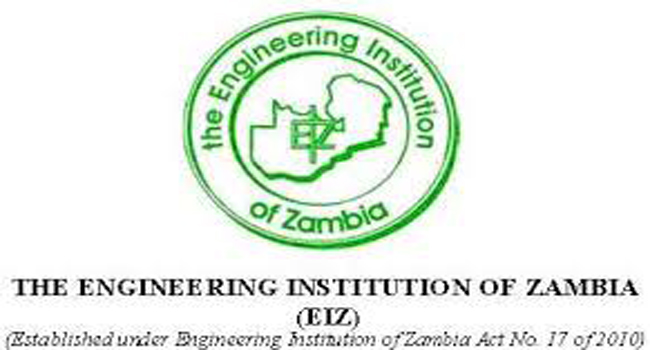By JAMES KUNDA –
…. Cholera could become permanent feature unless city is redeveloped and polluted underwater system overhauled, Engineers warn
THE Engineering Institution of Zambia (EIZ) has proposed the uprooting of Lusaka owing to extensive contamination of the underground water system that supplies millions of its residents.
The institute said yesterday it had established a committee of experts on water and sanitation to write a position paper on the water and sanitation system in Lusaka, following the recent cholera outbreak that claimed dozens of lives.
It was revealed at yesterday’s EIZ indaba held in Lusaka that the latest rating of the city’s water quality was ‘D’.
The committee is chaired by EIZ immediate past president Benard Chiwala, who said the report would be ready and submitted to the Government in a month’s time.
EIZ member Daniel Nkhuwa said the ‘deracination’ of the city was one of the recommendations that the institution arrived at to pave way for the clearing of the underground system.
“Lusaka must be uprooted to pave way for redevelopment and an entire overhaul of the underground water system to address the recurrence of contemporary outbreaks such as the one we are experiencing now (cholera),” Professor Nkhuwa said, “Extensive expansion of the system is necessary to increase coverage of clean water and sanitation which is essential to human health.”
Prof Nkhuwa said this in a presentation on water and sanitation service
delivery at an EIZ indaba in Lusaka yesterday.
The event was held under the theme ‘Sustainable development in the
water and sanitation sector’.
Prof Nkhuwa said the latest rating of Lusaka underground water was grade D.
In a presentation on rural water supply and sanitation, another EIZ member Ennie Muchelemba said the use of substances such as chlorine in the purification of underground water was unsustainable.
This, she said, was because underground water was comingled with harmful toxic substances such as faecal matter and vibrio cholera, the bacteria that causes cholera.
Ms Muchelemba instead suggested the curbing of unplanned settlements and a budgetary increase to water and sanitation provision as the more progressive steps towards improving the underground water system.
She bemoaned that the latest budgetary allocation to water and sanitation service improvement was less than one per cent.
Another EIZ member, Ian Banda, in a presentation on solid waste management, said Zambia had a lot to learn on best practices from other countries like South Africa, which had managed to enhance garbage collection services, with jobs created for the people.
Resident Doctors Association of Zambia president Alinani Silwamba said diseases such as cholera could easily be alleviated through members of the public adopting and practising best hygiene practices.
EIZ president George Sitali said the report of the technical committee would supplement the Government’s efforts in enhancing the delivery of access to clean water and sanitation, as enshrined in the Seventh National Development Plan (7NDP) and the United Nations (UN) Sustainable Development Goals (SDGs).
“The report will suggest appropriate and rehabilitative measures on water and sanitation to the Government, hence the careful team of experts we have in place,” Mr Sitali said.
Mr Chiwala, on the sidelines of the indaba, told journalists that the ‘way out’ of the current predicament for Lusaka was effective water and sanitation policy implementation by the Government.







